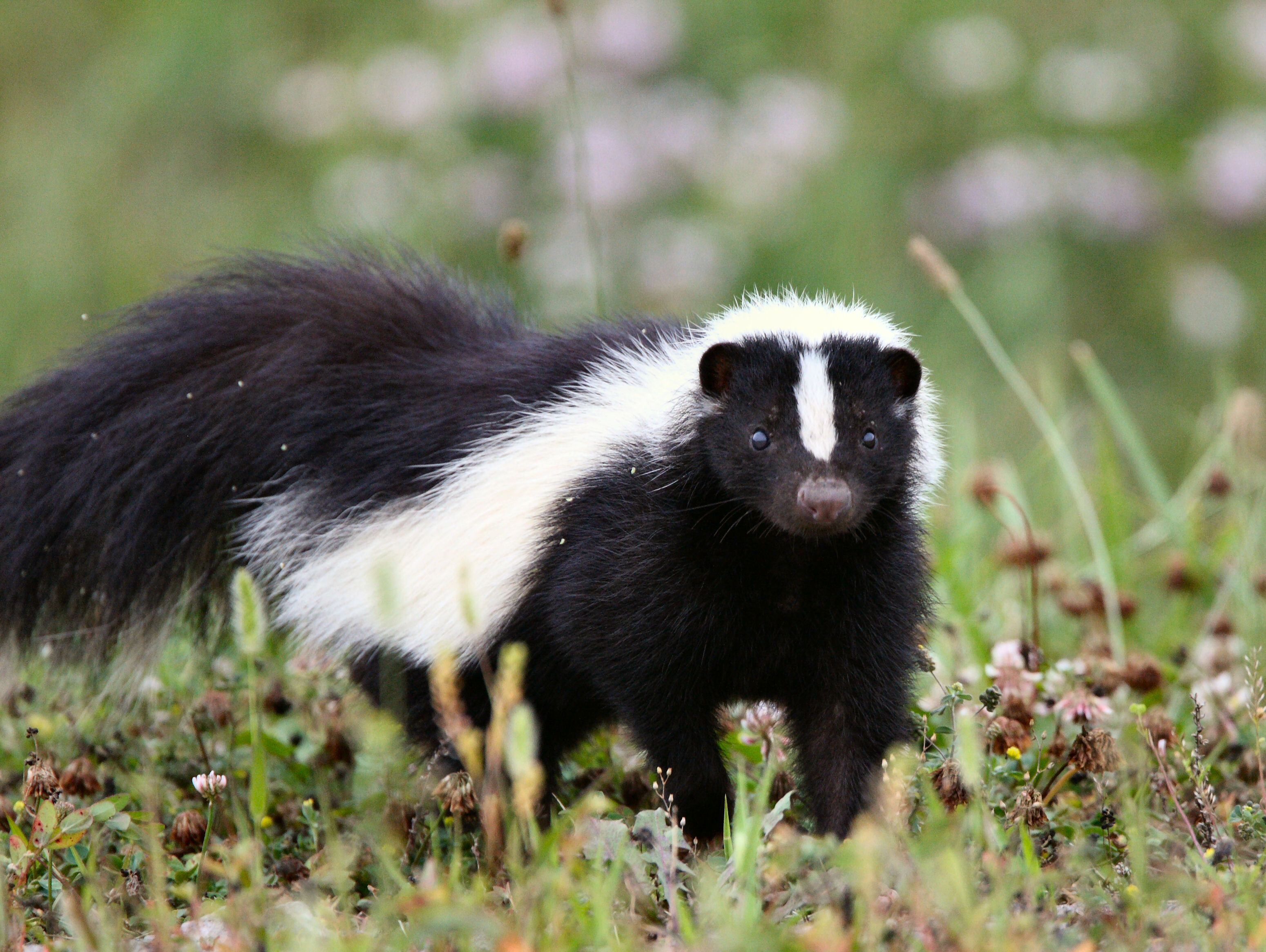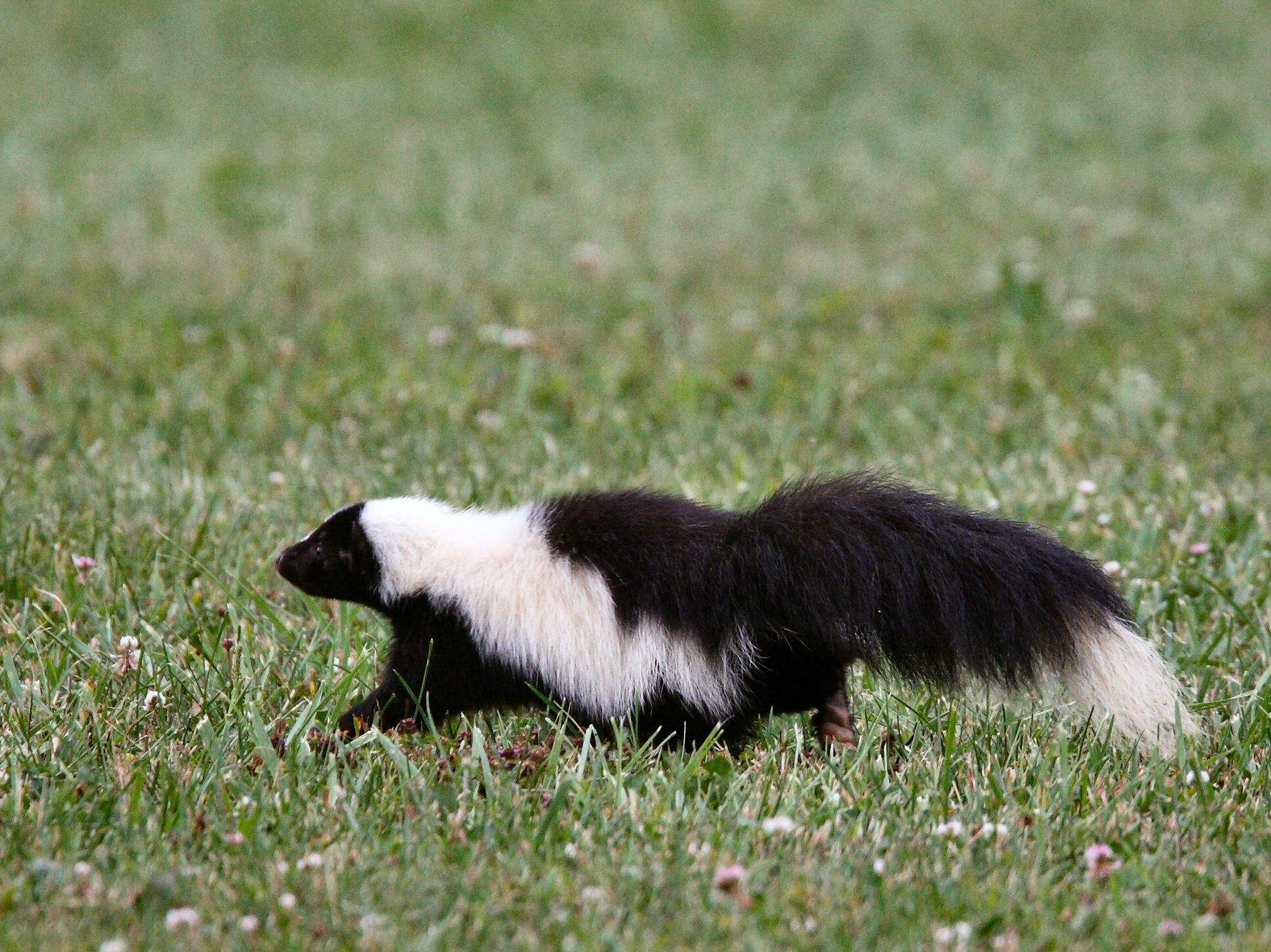Skunk
Skunks are house cat-sized mammals native to North America. There are several types of skunks. The striped skunk is the most common, found in nearly all of the continental United States and the southern half of Canada. It is mostly black with white on top of the head and neck and extending down the back, usually separating into two white stripes. Spotted skunks are the second most common, ranging from the southeastern U.S. to the northwestern Midwest and slightly west of the Mississippi River. Spotted skunks are smaller and black with white spots or short white streaks.
Skunks inhabit a variety of habitats including old fields, pastures, and woodland edges in rural and urban areas. They are nocturnal and become seasonally dormant in winter. They den in thick brush piles or woodchuck holes, and under decks and porches. Mating takes place during late February and early March, and an average of six blind and helpless young are born between late April and early June. About seven weeks later, the young begin to venture out with the female and are able to spray musk. Young skunks usually disperse during the fall of their first year.
Skunks are omnivorous but especially fond of insects, earthworms, small amphibians, mushrooms, small mammals, as well as fruits and nuts when seasonally available. They also will eat pet food and garbage if readily available. Skunks may damage lawns when they dig for grubs and insect larvae. When frightened or attacked by pets and predators, when interacting with other skunks, or when dying, they discharge a pungent spray that is nauseating to many.
Skunks are known carriers of rabies; therefore, any skunks observed behaving abnormally or sickly should be avoided. The following symptoms may indicate the presence of rabies or other neurological diseases in mammals: disorientation, impaired movement, paralysis or lack of coordination, unprovoked aggression, strange vocalizations, excess salivation, and unusually friendly behavior. If you see this behavior, avoid the animal and notify your local police or animal control officer.
Legal, Regulated Trapping in Massachusetts
Legal, Regulated Trapping in Massachusetts
The use of legal, regulated, trapping by licensed trappers can be useful for reducing local wildlife populations and can help reduce nuisance problems in Massachusetts.
Solutions for skunk problems
Laws and regulations to be aware of
Regulations for Massachusetts
|
||||||
While we attempt to provide guidance about state and federal regulations pertaining to specific species and control techniques, we do not provide information about local jurisdictions (city, town, county, etc.) where regulations may be more restrictive, especially as it applies to discharge of firearms, transport of animals or use of trapping equipment. Contact your local city or county government to inquire further. No guarantee is made that information (or lack of information) associated with a species or control technique is completely accurate or current. You should become familiar with federal, state and local laws before beginning any wildlife control activities. |





